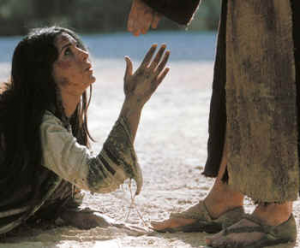30. Poured Out

And when He had taken some bread and given thanks, He broke it and gave it to them, saying, “This is My body which is given for you; do this in remembrance of Me.” And in the same way He took the cup after they had eaten, saying, “This cup which is poured out for you is the new covenant in My blood.” (Luke 22:19-20)
The Greek words for pour have a very specific use, and with the exception of one verse (in John 2:15), the words have to do with either the pouring out blood, the pouring out of God’s wrath (bowls of judgment of Revelation 16) or the pouring out of the Holy Spirit.
And when He had taken a cup and given thanks, He gave it to them, and they all drank from it. And He said to them, “This is My blood of the covenant, which is poured out for many. “Truly I say to you, I will never again drink of the fruit of the vine until that day when I drink it new in the kingdom of God.” (Mark 14:24-25)
All the circumcised believers who came with Peter were amazed, because the gift of the Holy Spirit had been poured out on the Gentiles also. For they were hearing them speaking with tongues and exalting God. Then Peter answered, “Surely no one can refuse the water for these to be baptized who have received the Holy Spirit just as we did, can he?” And he ordered them to be baptized in the name of Jesus Christ. Then they asked him to stay on for a few days. (Acts10:45-48)
Then I heard a loud voice from the temple, saying to the seven angels, “Go and pour out on the earth the seven bowls of the wrath of God.” So the first angel went and poured out his bowl on the earth; and it became a loathsome and malignant sore on the people who had the mark of the beast and who worshiped his image…Then the seventh angel poured out his bowl upon the air, and a loud voice came out of the temple from the throne, saying, “It is done.” (Rev 16:1-2,17)
Not only are the uses of poured out significant and life changing, but the English word is nowhere near as potent as the Greek definitions: gush, rush headlong, and spill. One of the reasons for such a forceful word is that it represents an impact of cataclysmic and life changing proportions. Think of what the blood of Christ has accomplished. What the pouring out of the seven bowls will bring to pass. And consider the change when the Holy Spirit is poured out in our lives. These are immense. One of wrath, one of sacrifice, one of transformation. If our God pours it all out with passion and utter commitment, should we not do likewise?
Finally, not only is this New Covenant new, it is huge. The Jews, long before they were Jews, were taught: Only you shall not eat flesh with its life, that is, its blood. Surely I will require your lifeblood; from every beast I will require it. And from every man, from every man’s brother I will require the life of man. Whoever sheds man’s blood, by man his blood shall be shed, for in the image of God He made man. These are the words of the LORD to Noah. Note how it was implemented into Jewish law:
‘For the life of the flesh is in the blood, and I have given it to you on the altar to make atonement for your souls; for it is the blood by reason of the life that makes atonement.’ “Therefore I said to the sons of Israel, ‘No person among you may eat blood, nor may any alien who sojourns among you eat blood.’ “So when any man from the sons of Israel, or from the aliens who sojourn among them, in hunting catches a beast or a bird which may be eaten, he shall pour out its blood and cover it with earth. For as for the life of all flesh, its blood is identified with its life. Therefore I said to the sons of Israel, ‘You are not to eat the blood of any flesh, for the life of all flesh is its blood; whoever eats it shall be cut off.’ (Leviticus 17:11-14)
So we learn in God’s design, there are only two uses for blood. The first is for life, and the second for sacrifice. And it is only in Christ that both are realized.


